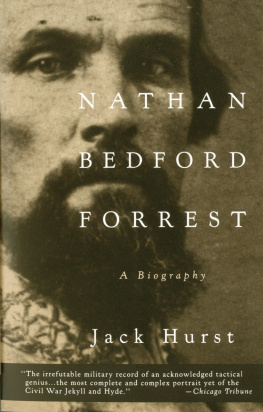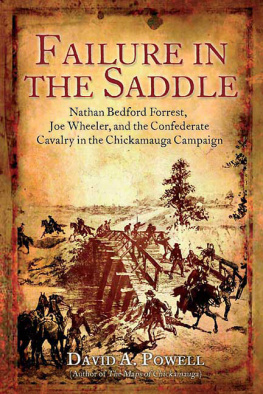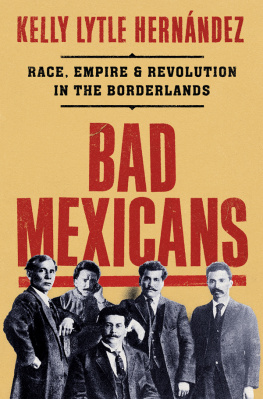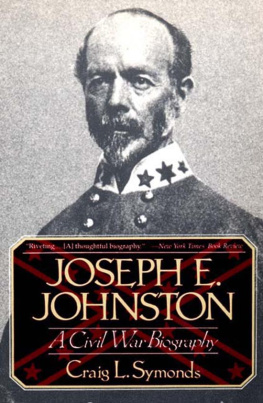Bedford
Forrest
and His Critter Company

Southern Classics Series
SOUTHERN CLASSICS SERIES
M. E. Bradford, Founding Series Editor

Donald Davidson | The Tennessee, Volume I |
Donald Davidson | The Tennessee, Volume II |
Caroline Gordon | Green Centuries |
Caroline Gordon | None Shall Look Back |
Caroline Gordon | Penhally |
Caroline Gordon | The Women on the Porch |
Johnson Jones Hooper | Adventures of Captain Simon Suggs |
Madison Jones | The Innocent |
Augustus Baldwin Longstreet | Georgia Scenes |
Andrew Nelson Lytle | Bedford Forrest and His Critter Company |
Andrew Nelson Lytle | A Wake for the Living |
John S. Mosby | The Memoirs of Colonel John S. Mosby |
Thomas Nelson Page | In Ole Virginia |
William Pratt, Editor | The Fugitive Poets |
Elizabeth Madox Roberts | The Great Meadow |
Allen Tate | Stonewall Jackson: The Good Soldier |
Robert Penn Warren | John Brown: The Making of a Martyr |
Robert Penn Warren | Night Rider |
Owen Wister | Lady Baltimore |
Stark Young | So Red the Rose |
Bedford
Forrest

and His Critter Company
ANDREW NELSON LYTLE
with a preface by Walter Sullivan

Copyright 1931, 1984, by
Andrew Nelson Lytle
Preface to this edition copyright 1992
by J. S. Sanders & Company
All rights reserved. No part of this publication may be reproduced or transmitted in any form or by any means, electronic or mechanical, including photocopy, recording, or any information storage and retrieval system now known or to be invented, without permission in writing from the publisher, except written for inclusion in a magazine, newspaper, or broadcast.
Library of Congress Catalog Card Number:
91-67518
ISBN: 978-1-879941-09-0
Published in the United States by
J.S.Sanders & Company
P. O. Box 50331
Nashville, Tennessee 37205
J.S.Sanders 1992 Edition
Second printing June 1993
Third printing November 1993
Fourth printing March 1995
Fifth printing August 1996
Manufactured in the United States of America
TO MY GRANDMOTHER
MOLLY GREAVES NELSON
who has heard on the hard turn-pike
the sudden beat of his horses hoofs
and the wild yell of his riders.
CONTENTS
by Walter Sullivan
by Andrew Nelson Lytle
PART ONE
THE WILDERNESS ROAD
PART TWO
DONELSONA TRAGEDY OF ERRORS
PART THREE
FORREST OR BRAGG
PART FOUR
THE ATLANTA CAMPAIGN IN NORTH MISSISSIPPI
PART FIVE
POSTLUDE
ILLUSTRATIONS
MAPS
PREFACE
We hear little about Nathan Bedford Forrest now. When our attention is directed to the Confederate Army, we are likely to think of Robert E. Lee or Jackson who earned the name Stonewall at First Manassas or the dashing J.E.B. Stuart who scouted far behind enemy lines and wore a plume in his hat. We think of Longstreet who may or may not have faltered at Gettysburg and of Pickett who made his famous charge during that same engagement. We are perhaps likely to think of these men because they were officers in the Army of Northern Virginia which won battle after battle during the early years of the Civil War. Forrest served with the Army of Tennessee which was a good army poorly led. Albert Sidney Johnston fought well at Shiloh, but died before he could consolidate his victory. Braxton Bragg, as readers of this book will discover, was a bungler who was continued in command of the Army of Tennessee too long. Joseph Johnston was not left in command long enough, and John B. Hood slept while an entire Union army slipped out of his grasp. Why, then, did Andrew Lytle choose to write of Forrest, a soldier whose victories have been overshadowed by the failures of the Army of Tennessee?
The answers to this question are both simple and complex. The most basic facts of Forrests life are sufficient to fire any authors imagination. He was a tall, strong, and ruggedly handsome man who, with less than a year of formal schooling, made a million dollars by the time he was forty and turned out to be a military genius when he went to war. Mistreated and betrayed by his commanders and hunted relentlessly by his enemies, he fought numerous battles, usually against superior forces, and never lost until the end, when he had no army left with which to fight. He was wounded four times, had twenty-nine horses shot out from under him, and killed thirty men in hand-to-hand combat. After the war he helped the widows of his fallen soldiers as long as he had means to do so, he tried and failed to build a railroad, and he served as grand wizard of the Ku Klux Klan in an effort to restore white dominated order to the South. Lytles claim that Lee called him the greatest general in the Confederate army cannot be documented. But Sir Douglas Haig, commander of British Forces in World War I, studied his campaigns carefully, as did Erwin Rommel, the famous Desert Fox of World War II. An account of his battles was published in 1930 by Captain Eric William Sheppard, O.B.E., M.C. Employing his cavalry frequently as mounted infantry, Forrest devised basic tactics for the kind of mobile warfare that was fought by tanks and motorized infantry in the Second World War.
Such a life begs to be written, and authors less skillful than Andrew Lytle began to write it almost as soon as the Confederate banners had been furled. John Morton and William Witherspoon, both of whom had served under Forrest, wrote their memoirs. General Thomas Jordan and J. P. Pryor sent their manuscript to Forrest for corrections and brought out their life of him in 1868. Captain J. Harvey Mathes and Dr. John Allen Wyeth composed their biographies near the turn of the century and gathered material from the surviving veterans of Forrests command. Lytle drew heavily from Wyeth and also talked to some ex-Confederates, but by the late 1920s their ranks had thinned and memories had grown dim. This seems to have been of no great consequence to Lytle. His book has no footnotes and only a scanty bibliography. His biography was going to be as much a work of the imagination as of fact; he was pioneering the form that Shelby Foote was to bring to brilliant fruition in his three-volume history of the Civil War.
Lytle was drawn to Forrest not only for the extraordinary dimensions of his character, but for what he represented in Lytles vision of the South. In The Hind Tit, his contribution to
Next page








